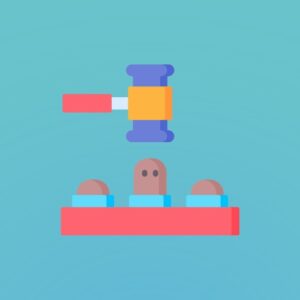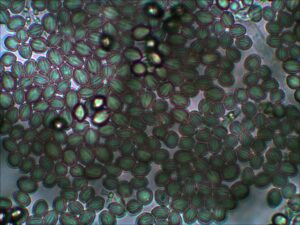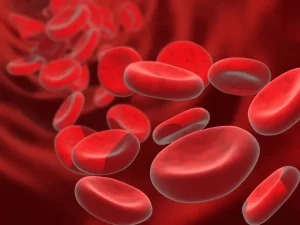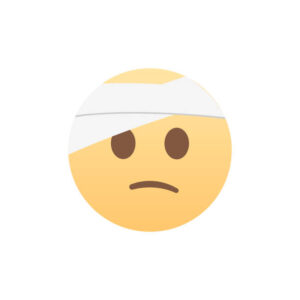Understanding Constipation in Children
Many think that constipation is a time-related ailment, but this is not the case. Your child may go two or three days without pooping and still isn’t constipated. Constipation is a matter of consistency.
Constipation is when your child has hard, dry, small stools that are painful or difficult to pass.
Breastfed babies become good at taking in nutrients from mom’s milk, so it is normal for these babies to go a little bit longer between bowel movements. Some breastfed babies have gone as long as a week without pooping, and they are fine. Keep an eye on any symptoms, and don’t panic.
What Are the Causes of Constipation in Children?
Causes of Constipation
- Low fiber diet or poor diet
- Ignoring the urge to poop or holding a poop. Some kids will hold a poop if they’re:
- Embarrassed
- Worried that it would be painful
- Stressed out about potty training, or
- Occupied with playing and don’t want to stop.
- Certain medications
- Certain health problems
What are the Signs and Symptoms of Constipation in Children?
Signs & Symptoms
- Squirming or changing positions (clenching butt cheeks, odd dancing movement)
- Abdominal pain and bloating
- Stool in underwear
- Pee in underwear (from the stool pressing on the bladder)
How Do You Treat Constipation in Children?
Treatment
- Changes in diet
- Behavioral changes
- Enemas or laxatives
Constipation Diet
A good diet for bowel movements includes fiber, plenty of fluids, and fruits and veggies.
- We recommend 14-31 grams of fiber per day.
- Foods high in fiber include beans, cereals, bran, whole wheat and grain, pears, raspberries, apples, green peas, sweet potato, leafy greens, potato, and squash.
- Be sure to limit cheese, chips, fast food, red meat, processed foods, and foods high in fat.
- We also like to try prebiotics and probiotics for older kids.
- Drink, drink, drink! Avoid sugary drinks and juices.
Functional Constipation
Functional constipation is common in children who cannot or will not poop and is usually caused by painful constipation or toilet training problems. Constipation can have various presentations in children. Avoid sugary drinks, juice, processed foods, cow’s milk, bananas, and cheese if your child is constipated.
When to See your Pediatric Healthcare Provider
You should see your pediatrician if your child has had constipation symptoms for over two weeks. Additionally, you should see your pediatrician if your kid has a fever, is vomiting, if there’s blood in the stool, they have a swollen abdomen, or if they have lost weight.
Home Remedies For Constipation (laxatives, dietary changes, and behavioral changes)
- Miralax or another laxative
- Mineral Oil
- Magnesium (supplement or powder, e.g., Mag Citrate, CALM gummies, Milk of Magnesia)
- High dose of Vitamin C (talk to your pediatric healthcare provider for dosage)
- Fiber-rich foods (sweet potatoes, oatmeal, apples, popcorn, carrots, bananas, whole grains, berries, pears)
- Alternative softeners (flaxseed oil, flaxseed meal, chia seeds, probiotics)
- Senna (tablet or tea)
- Plenty of water
Relax the Pelvic Floor
- Get a squatty potty, straddle the toilet backward, or place the feet on the toilet seat and squat.
- Blow bubbles, balloons, or a pinwheel
- Sing songs
- Play the farting game
- Sit on a yoga ball
- Have a warm bath before it’s time to poop
Behavioral Therapy
Once you can loosen your child’s stool, you must re-toilet train your child. Because constipated children often lose sensation in specific nerves, they may need to retrain their rectal muscles to alert them when they need to poop. This process can take several months to a year. For severe cases, enlist the child’s school for help. Children may need access to a private bathroom and permission to use the bathroom whenever they request.
Recommendation From Dr. Mike Vicioso
“Start with Milk of Magnesia and Senna. Then, use Pedialax daily for maintenance.“
Milk of Magnesia
- Caplets: 500 mg Mag Oxide
- >12 years old 2-4 daily
- Liquid 1200 mg Mag Hydroxide
- 6-11 years: 15-30 mL
- >12 years 30-60 mL
Senna (tablet or tea)
- 2-6 years: 2.5-5 mg once or twice per day
- 6-12 years: 7.5-10 mg per day
- >12 years: 15-20 mg per day
Pedialax
- Chewable Tablets: 400 mg Mag Hydroxide
- Age 2-6: 1-3 gummies
- 6-12 years: 3-6 gummies
Check out Shaklee’s herbal laxative to help with constipation. For questions or comments, please respond to this blog or contact us. We look forward to hearing from you!







